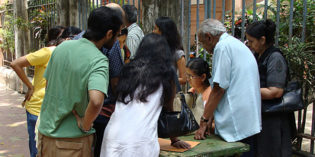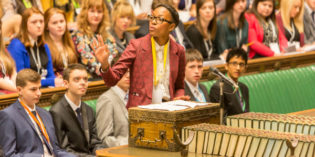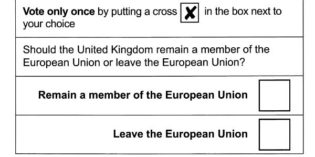Elections and electoral systems

Why do voters back corrupt and dishonest politicians? Interview with Milan Vaishnav
A candidate with criminal allegations hanging over them will repel voters – or will they? Not necessarily. In India, a third of the MPs elected in 2014 faced an ongoing criminal case. Milan Vaishnav, the author of a new book about the nexus of crime and democracy in India, talks to Ros Taylor about the appeal […]

Breaking with the past: how voting reform could reinvigorate Australian politics
Spoiled ballot papers and the lowest turnout since voting became compulsory in 1925: young Australians are increasingly disillusioned with traditional politics, and with the two main parties in particular. Adele Lausberg says it is time to overhaul the way the House of Representatives is elected to give smaller parties more of a voice. Both the House […]

Votes at 16: do mock elections make a difference to adults’ attitudes?
Mock elections help 16- and 17-year-olds understand how elections work. But do they make adults more likely to back lowering the voting age to 16? Erik Gahner Larsen, Klaus Levinsen and Ulrik Kjær looked at the 2009 local elections in Denmark, when a number of municipalities held mock elections alongside the real ones. They found that they […]

Referendums, informed voting and the trouble with a ‘truth commission’
Following the EU referendum, there have been demands for a ‘truth commission’ to be set up to oversee future referendum campaigns. Paul Kildea argues that there are significant practical difficulties to the establishment of such a body. These include the possibility of a ‘chilling effect’ on speech, the fact that the accuracy of many controversial […]

The ultimate test for anti-Brexit MPs: will they resign their seats?
MPs who feel strongly enough about a particular issue – whether Heathrow expansion, the Anglo-Irish Agreement or increasing pre-trial detention – have sometimes resigned their seats and stood again as independents or for another party. Will anti-Brexit MPs adopt this strategy? Sean Swan says it is fraught with risks, but resigning en masse would be the […]

Thinking harder: how we could do referendums differently
A single vote will take us out of the EU, quite possibly without Parliament’s explicit consent. Davina Cooper asks whether a referendum based purely on individual Leave/Remain votes was the best we can do – or whether a more deliberative system, which would demand more engagement from the public, could produce a more considered outcome. Similar PostsThe case […]

Beyond the binary: what might a multiple-choice EU referendum have looked like?
Voters in the EU referendum could choose only between leaving and remaining – with no say on whether to stay in the single market, renegotiate a different deal or even integrate more fully with the EU. Lily Blake argues a multiple-choice referendum of the kind held occasionally abroad would have been less divisive, set a […]

Book review | Against Elections: The case for Democracy, by David van Reybrouck
If democracy is in a bad state and marred by chronic distrust, what is the remedy? In Against Elections: The Case for Democracy, David Van Reybrouck suggests an ancient solution: sortition, or the selection of officials from the general public through a lottery system. While the book does a great job of opening up discussions […]

No longer fit for purpose: it’s time to change the way we elect London Assembly Members
London Assembly Members are elected using the Additional Member System. It’s a big improvement on first past the post, argues Charley Jarrett, but it’s now leading to inertia, with AMs lacking an incentive to tell constituents about their work. Ten of the 14 London seats have never changed party control and there is no way […]



 Democratic Audit's core funding is provided by the Joseph Rowntree Charitable Trust. Additional funding is provided by the London School of Economics.
Democratic Audit's core funding is provided by the Joseph Rowntree Charitable Trust. Additional funding is provided by the London School of Economics.